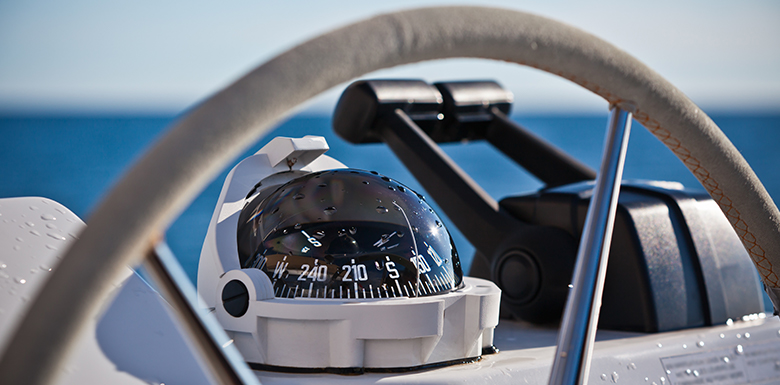What Is Boating While Impaired?
By
Randall Law, PLLC excels in criminal defense, serving clients in Charlotte, NC & other surrounding cities.
Learn More
Randall Law, PLLC
i
Category Driving While Impaired, DUI/DWI, DWI
Saturday, August 29, 2020

One moment you’re enjoying a cold drink and a day out on the water with family and friends. The next, you’re being charged with boating while impaired and facing a looming court date, financial penalties, and even jail time.
Being charged with boating while impaired can have lasting consequences. If you’ve been charged with BWI, it’s critical that you reach out to an experienced criminal lawyer in Charlotte, NC. An experienced boating while impaired attorney can help you understand your charges and how to fight them, as well as the penalties you may face if convicted. Call Randall Law, Criminal Defense Attorneys at (980) 237-4579 or use our online contact form to reach out for a free consultation.
BWI Legal Definition
Boating while impaired has a rather broad definition, meaning it can be easy for an officer to charge you. There are two main ways you can be charged with BWI:
- Operation of a vessel while under the influence of an impairing substance
- Having “at any relevant time after boating” a BAC of .08% or more.
It’s important to note that a “vessel” here includes motorized and non-motorized vessels, surf boards, water skis, and other similar devices. You could feasibly be charged with BWI for drunk canoeing.
In the past few years, law enforcement has been cracking down on intoxicated boaters on Lake Norman, Mountain Island Lake, Lake Wylie, and the Catawba River. Boating while impaired can have serious consequences for yourself and others. The best way to avoid a BWI check is to follow safety requirements and rules of conduct on the water.
What Happens During a BWI Check?
You may be picturing a similar scene to a drunk driving stop, but BWI stops have many important differences.
One of the most important differences is the fact that law enforcement can stop a vessel at any time to conduct a “safety check”. Unlike with a DWI, probable cause is not required.
Another key difference is that, unlike DWI, BWI is not an implied consent law. This means that you have the right to refuse breath or blood tests without suffering a civil revocation of your North Carolina driving privilege.
What Are the Penalties for a BWI?
Boating while impaired is a Class 2 misdemeanor charge in NC, meaning it can carry penalties of up to 60 days in jail and a $1,000 fine. You may also lose your license, see an increase in insurance costs, or face personal consequences, such as loss of a job, damage to your reputation, or inter-personal conflict.
There are also increased penalties and severe consequences if your impairment resulted in a boating accident. Sheyenne’s Law, named for a 17-year-old victim of a BWI accident, enhanced penalties for BWI accidents. In these cases, serious injury or death of another party, or aggravated injury or death can lead to imprisonment and up the crime to a felony charge in North Carolina. A case is considered aggravated if the offender has been previously convicted of a BWI in the past seven years. Enhanced penalties may be applied to the following situations:
- Serious injury by impaired boating: Class F felony, 10 to 41 months in prison.
- Aggravated serious injury by impaired boating: Class E felony, 38 to 160 months in prison.
- Death by impaired boating: Class D felony, 38 to 160 months in prison.
- Aggravated death by impaired boating: Class D felony, 64 to 160 months in prison.
- Repeat death by impaired boating: Class B2 felony, 94 to 393 months in prison.
In these cases, a judge can also impose a fine, in addition to imprisonment.
How an Attorney Can Help
Hiring an attorney is the best way to understand your charges and build your case. Both BWI and DWI are dependent upon proper officer conduct, and a detailed knowledge of these laws is essential to a strong defense. Your attorney can help you identify weak points in the case against you, gather evidence, communicate with relevant parties, and defend you in court.
Your defense will vary depending on the circumstances of your case. Your attorney may argue that sobriety tests were conducted incorrectly, or that the results of the tests are not reliable. While it is often good practice for boaters to remain silent and refuse tests, having witnesses your sobriety and normal behavior are also useful when fighting an undeserved BWI charge.
BWI cases are unusual and often complex. Working with an experienced attorney is essential to protecting your rights out on the water.
Contact Randall Law, Criminal Defense Attorneys Today
Time is of the essence in all impairment cases. At Randall Law, Criminal Defense Attorneys, we understand how serious a BWI case can be, and we’re ready to get started building your defense. With over 30 years of combined experience, our team of attorneys is one of Charlotte’s top choices for criminal defense.
Call us at (980) 237-4579 or reach out to us online for tenacious and tough legal counsel. Schedule your free consultation today and take the first step towards protecting your rights.
